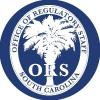Press Release

How the FCC National Broadband Map Impacts the BEAD Program, Part 2 of 3: The Role of States and Territories in Selecting Locations Eligible for BEAD Funding
One of the primary uses of the Federal Communications Commission's National Broadband Map for the purposes of the Broadband Equity, Access, and Deployment (BEAD) program is the allocation process – the process of determining the amount of BEAD funds between the states, territories, and the District of Columbia (“Eligible Entities”).

How the FCC National Broadband Map Impacts the BEAD Program, Part 1 of 3: Allocation of Funds
The Infrastructure Investment and Jobs Act (IIJA) directs the National Telecommunications and Information Administration (NTIA) to use the Federal Communication Commission's National Broadband Map to determine how much money each state, territory, and the District of Columbia (which we refer to as “Eligible Entities” for the Broadband Equity, Access, and Deployment (BEAD) Program) will be allocated in the BEAD program.
Governor Kelly (D-KS) Commits $30 Million to Increase High-Speed Internet Availability
Governor Laura Kelly (D-KS) highlighted a new program aimed at helping Kansas communities that lack high-speed internet. The Lasting Infrastructure and Network Connectivity (LINC) program will provide $30 million in competitive funding opportunities to build the infrastructure needed for more homes and businesses to access broadband. The goal of the LINC program is to reduce the cost of internet service, increase its availability, and improve its performance for users. LINC will provide opportunities for increased adoption of the internet by focusing on funding for:
New Speedtest Data Shows Starlink Users Love Their Provider
Satellite internet competition is heating up and Ookla has fresh data from Q4 2022 and Q1 2023 for HughesNet, SpaceX’s Starlink, and Viasat in North America, South America, and the Caribbean, as well as new Starlink markets. One finding is that Starlink users in metro and nonmetro areas love Starlink, while fixed broadband users dislike their internet service providers.
96 Areas for Broadband Zones Identified by Iowa Communities
Governor Kim Reynolds (R-IA) and the Department of Management’s Office of the Chief Information Officer (OCIO) announced the results of the OCIO’s Invitation to Qualify (ITQ). Ninety-six Broadband Intervention Zones were identified by Iowa communities across the state from a total of 99 applications. The ITQ process asked communities to propose areas across the State of Iowa that should be prioritized in funding decisions made under the Empower Rural Iowa Broadband Grant Program.

A Proposal for More Privacy in Domain Name Personal Data
The National Telecommunications and Information Administration (NTIA) is embarking on an inquiry into whether more privacy protections are necessary for people who have registered “.us” domains on the Internet. NTIA administers the contract for the country code top-level domain, for the United States, .us. The .us domain is used by American businesses, individuals, and localities. NTIA’s contractor, Registry Services, is required by the agency to maintain a publicly accessible database of .us domain name registrations.

$32.5 Million in ConnectSD Broadband Grants will Connect 3,137 Households, Farms, and Businesses in South Dakota
Governor Kristi Noem (R-SD) and the Governor’s Office of Economic Development announced the latest ConnectSD broadband grants. These awards will make quality, high-speed internet available to underserved households in South Dakota. Over $32 million in grants were awarded for 13 projects from nine applicants.
Benton Institute Welcomes Another Unanimous Verdict for FCC and Universal Broadband
The U.S. Court of Appeals for the 6th Circuit joined the 5th Circuit in rejecting an attack on the constitutionality of the Federal Communications Commission’s Universal Service Fund (USF). The USF is a critical means of reducing the cost of broadband and other telecommunications services for schools, hospitals and libraries, for low-income consumers, and for residents of rural America. The Benton Institute for Broadband & Society, MediaJustice, and the National Digital Inclusion Alliance are intervenors supporting the FCC in this case.
Gigi Sohn announced as 1st Executive Director of American Association for Public Broadband
Gigi Sohn will serve as the Executive Director of the American Association for Public Broadband (AAPB). Sohn will ensure public entities will have a visible, powerful, and consistent voice that will make the positive case for states to fund and communities to choose public broadband and oppose barriers to local choice. Founded by state and local broadband officials, AAPB is a 501 (c)(6) non-profit organization that will build a diverse membership of public broadband networks nationwide and advocate for municipal broadband and local choice at the federal, state, and local levels.


